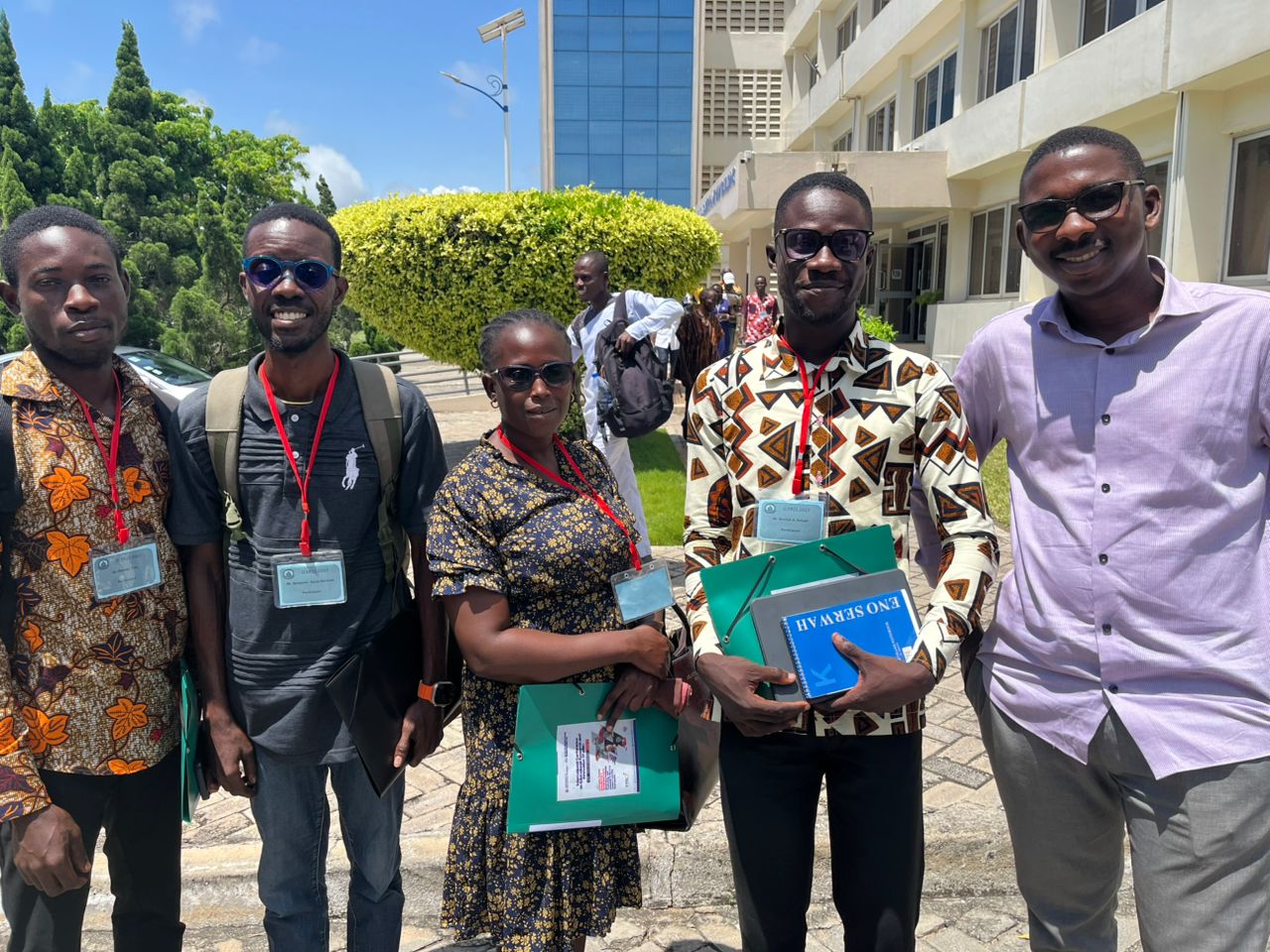
INTERNATIONAL CONFERENCE ON EDUCATIONAL RESEARCH AND INNOVATIVE STUDIES - A REPORT
THEME: Innovating Teacher Education for a Sustainable Future: Enhancing Pedagogy, Technology and Inclusivity in the 21st Century Learning Environment
DATE: 16–18 October 2025,
VENUE: UEW North Campus Assembly Hall
Executive summary
A five-member delegation from A. M. E. Zion Girls Senior High School, Winneba, attended the International Conference on Educational Research and Innovation Studies (ICERIS-UEW) held 16–18 October 2025. The conference was organised by the Institute for Educational Research and Innovation Studies (IERIS-UEW) and powered by NaCCA and T-Tel that brought together teacher educators, policymakers, researchers, and practitioners to address pedagogy, educational technology, and inclusive practice for a sustainable future. The delegation participated in plenaries, parallel sessions, workshops, and networking events, gathering practical strategies, policy insights, and partnership opportunities directly applicable to senior high school education, curriculum design, and school-level teacher development.
Delegation details
School: A. M. E. Zion Girls SHS, Winneba
Delegation size: 5 members
Primary objectives:
Acquire innovations in pedagogy and inclusive practice; explore technology-enhanced learning strategies for music education; identify collaborative research and professional development opportunities with UEW, NaCCA, and T-Tel.
Conference structure and participation
Format: Opening plenary sessions, keynote addresses, themed parallel sessions, hands-on workshops, poster presentations, policy roundtables, and networking forums across three days.
Theme focus areas represented: Pedagogical innovation, educational technology integration, inclusivity and special education, teacher education policy, sustainability in curriculum design.
Representing partners: IERIS-UEW (host), National Council for Curriculum and Assessment (NaCCA), Transforming Teacher Education and Learning (T-Tel).
Attendance at keynote addresses; presentation of two short-school practice case notes (submitted prior to conference); active participation in the NaCCA curriculum roundtable and a T-Tel workshop on blended professional learning.
Key sessions attended and takeaways
Pedagogy and teacher education
Student-centered, competency-based pedagogy: Practical sessions detailed classroom approaches that foreground competencies over rote knowledge, with modular lesson design and formative assessment routines adaptable to SHS classes.
Mentorship models for novice teachers: Scalable peer-mentoring frameworks and micro-teaching cycles were presented; recommended adaptation for departmental mentorship within the school.
Educational technology and blended learning
Low-cost EdTech for resource-poor settings: Demonstrations of offline-capable apps, low-bandwidth content delivery, and mobile-first lesson resources.
Digital assessment and feedback loops: Tools and workflows for quick formative assessment (assignments, timestamped feedback, and e-portfolios) that can document students’ performance progress.
Inclusivity and differentiated instruction
Universal Design for Learning (UDL) : Practical examples of multimodal lesson presentation, scaffolded tasks, and assessment accommodations for learners.
Community and cultural inclusion: Models for integrating traditions and student cultural assets into curriculum to boost relevance and inclusion while meeting national competencies.
Policy and systems-level insights
Curriculum alignment with national frameworks: NaCCA-led sessions clarified pathways for mapping school syllabi to national competency frameworks and assessment standards.
Teacher professional development pathways: T-Tel showcased blended CPD models that combine short in-person workshops, coaching cycles, and digital microlearning—suitable for continuous upskilling of SHS teachers.
Workshops and practical outcomes
Blended CPD design workshop (T-Tel)
EdTech clinic: AI Apps for writing and marking essays and drafted implementation steps for classroom pilots.
Curriculum mapping lab (NaCCA): Completed a mapping exercise aligning the school’s syllabus with NaCCA competencies and identified three priority gaps to address.
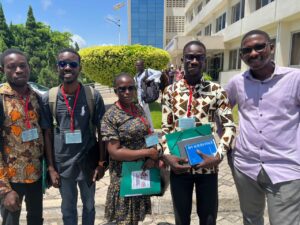
Benefits and impact for A. M. E. ZION GIRLS SHS
Immediate classroom changes: Adoption of formative assessment routines (rubrics, e-portfolio tasks) and trial of low-bandwidth app in selected classes.
Curriculum development: Incorporation of UDL principles and competency-aligned learning outcomes into the ongoing PLC, concrete edits suggested for inclusive activities and culturally responsive modules.
Professional development: Launch plan for a department-level blended CPD program using T-Tel templates; schedule for peer-observation cycles and micro-teaching.
Networking and partnerships: Established contacts with UEW researchers for collaborative action research projects, and with NaCCA representatives for curriculum validation consultations.
Recommendations
1. Pilot blended CPD immediately: Implement the CPD plan in term one with clear success metrics: teacher uptake, observed classroom changes, and student engagement measures.
2. Run an inclusive pilot class: Use UDL adaptations in two classes (mixed ability) for one semester, collect data (observations, student feedback, performance artifacts), and present findings at the school’s professional learning forum.
3. Integrate EdTech incrementally: Begin with the low-bandwidth apps for homework and exams; provide short staff training sessions and designate the ICT Coordinator as the in-school champion.
4. Formalise an action research partnership with UEW: Propose a collaborative study focusing on technology-enhanced learning outcomes and culturally responsive pedagogy; involve student researchers where feasible.
5. Align textbook content with NaCCA competencies: Fast-track the identified edits from the curriculum mapping lab and submit a validation draft to NaCCA contacts established at the conference.
6. Share learning across the school: Hold a half-day dissemination workshop for senior staff and teachers to cascade conference insights, using students to present learner perspectives.
Conclusion
Participation at ICERIS-UEW 2025 was strategically valuable for A. M. E. Zion Girls SHS. The delegation returned with concrete pedagogical strategies, practical EdTech solutions, inclusive instructional models, and institutional connections that directly advance the school’s goals in curriculum innovation, teacher development, and culturally responsive education. Immediate implementation steps and medium-term research and partnership actions are in place to translate conference learning into sustainable school-level change.

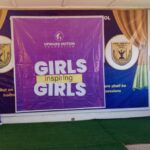


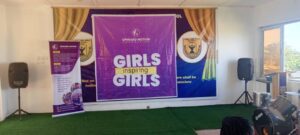
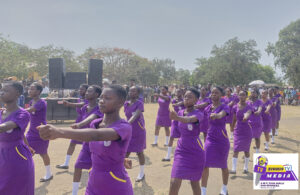
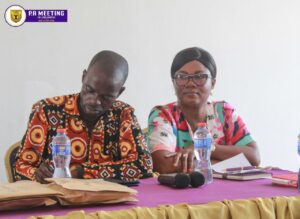
No comment yet, add your voice below!